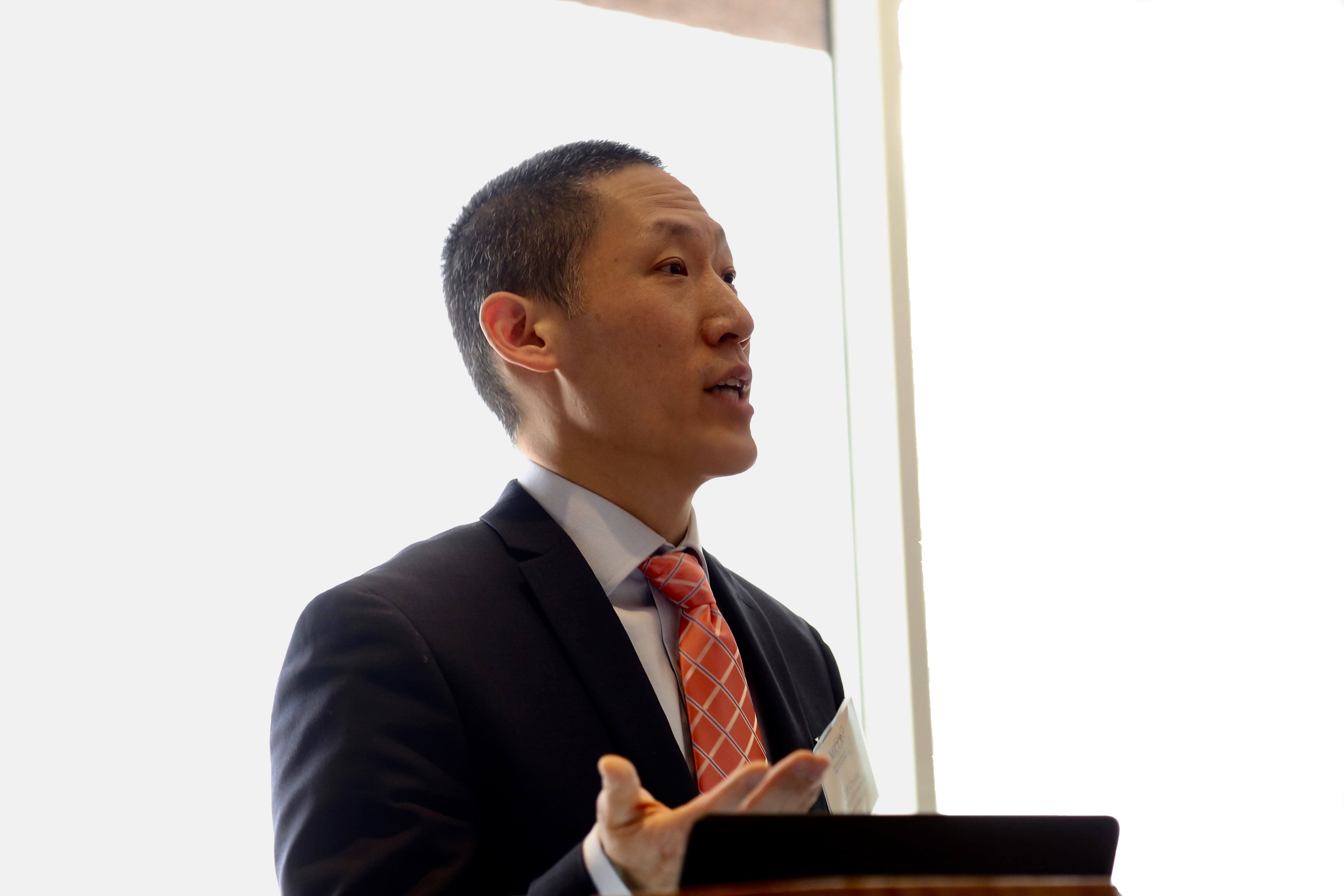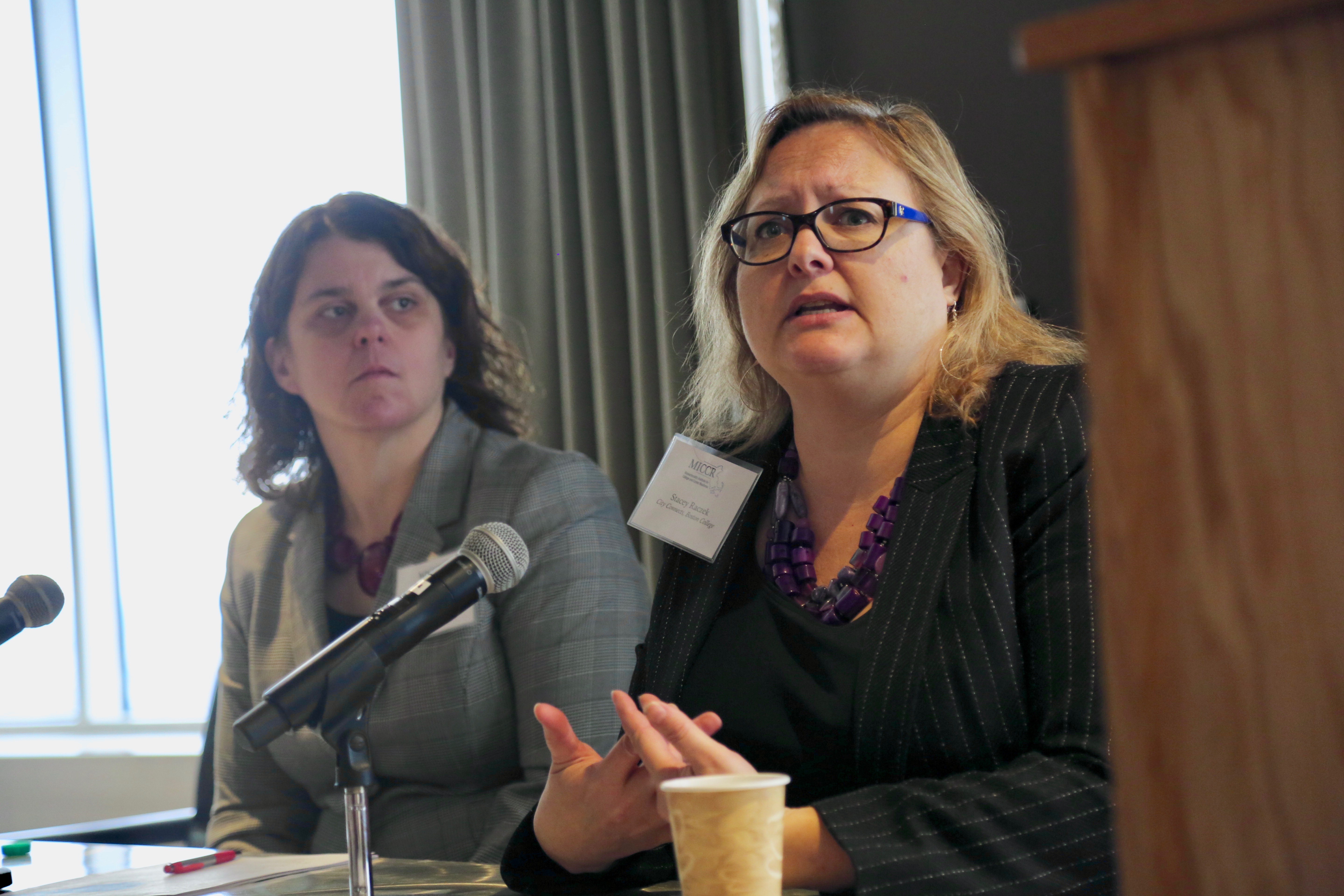 Last week, the Massachusetts Institute for College and Career Readiness (MICCR) convened education leaders and policymakers to examine efforts to ensure that all students attend schools with productive school climates.
Last week, the Massachusetts Institute for College and Career Readiness (MICCR) convened education leaders and policymakers to examine efforts to ensure that all students attend schools with productive school climates.
 Cliff Chuang, DESE’s Senior Associate Commissioner, kicked the conversation off by emphasizing the link between school climate and student success. He also described a host of initiatives underway at the department to support districts working to foster positive school climates. Then Stacey Raczek, Associate Director of Evaluation & Research for Boston College’s City Connects initiative, led us (click here to watch presentation) through a whirlwind tour of the state of the research on school climate across multiple domains, and recent efforts to develop reliable measures of school climate in each of these areas.
Cliff Chuang, DESE’s Senior Associate Commissioner, kicked the conversation off by emphasizing the link between school climate and student success. He also described a host of initiatives underway at the department to support districts working to foster positive school climates. Then Stacey Raczek, Associate Director of Evaluation & Research for Boston College’s City Connects initiative, led us (click here to watch presentation) through a whirlwind tour of the state of the research on school climate across multiple domains, and recent efforts to develop reliable measures of school climate in each of these areas.
Carrie Conaway, DESE’s Chief Research and Strategy Officer, debuted results (click here to watch presentation) from the first administration of Massachusetts’s new school climate  survey. She also reviewed a variety of issues the department will weigh as they evaluate this first-year pilot and refine the survey tool.
survey. She also reviewed a variety of issues the department will weigh as they evaluate this first-year pilot and refine the survey tool.
The conversation then turned to the experience of actual school districts (click here to watch the panel). Amalio Nieves, Assistant Superintendent of Social Emotional Learning and Wellness, described various strategies the Boston Public Schools are pursuing to foster social-emotional learning and build strong school climates. Ann Marie Carpenter, Unit Leader for School Psychologists and School Adjustment Counselors at the Pittsfield Public Schools, gave an overview of efforts in her district, and how they are evolving as educators seek to continuously improve their practices. MICCR Principal Investigator and BU professor Scott Solberg joined this panel to share the perspective he’s gained studying these efforts in school systems across the country.

For all of those who were unable to join us last week, we highly recommend taking some time to watch these excellent presentations and listen in on the dialogue.
Thank you to all of the organizations that came together to make this forum possible. They include our MICCR partners, Boston University and the Rennie Center, the Center for Optimized Student Support at Boston College, and the Massachusetts Department of Elementary & Secondary Education.